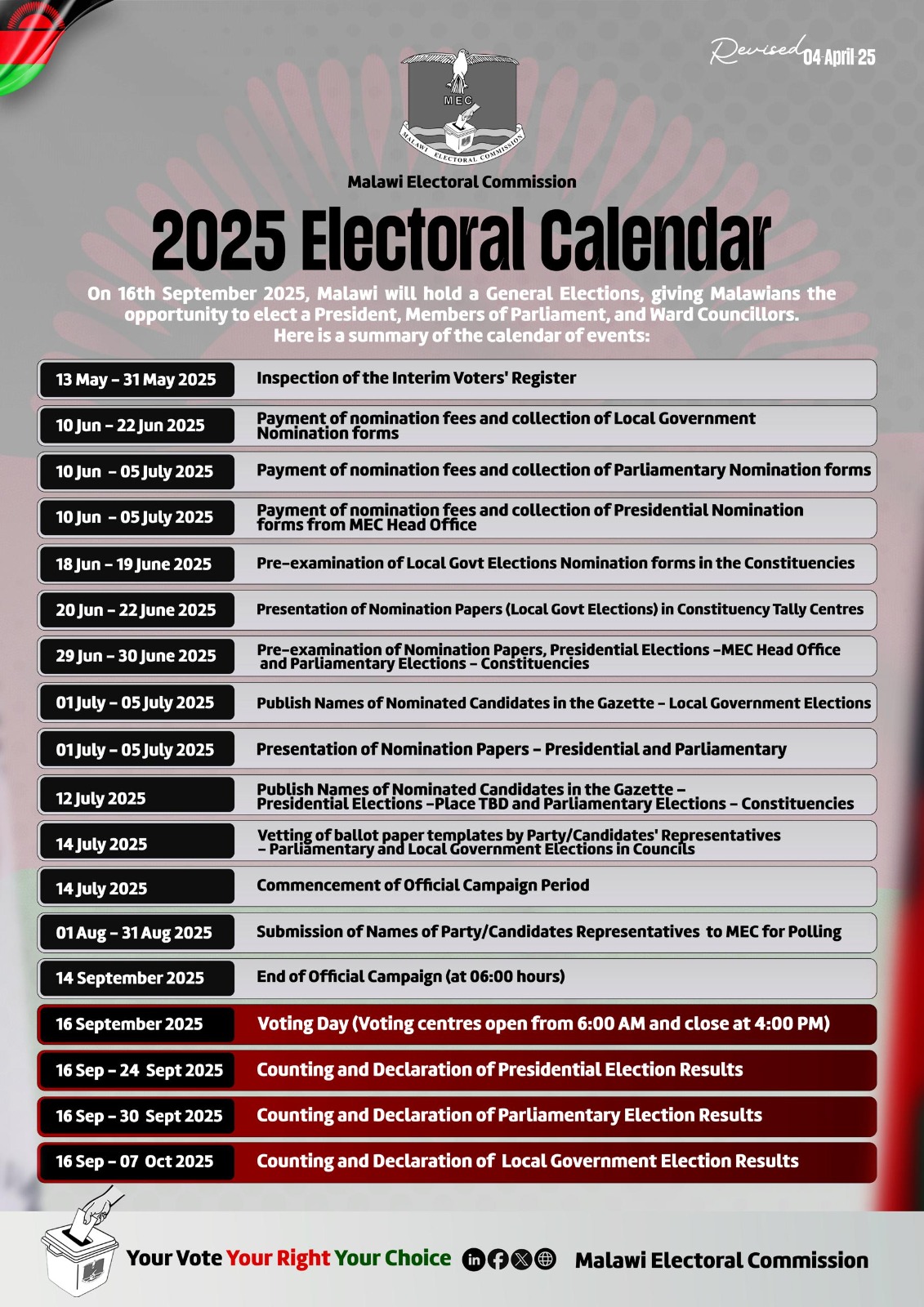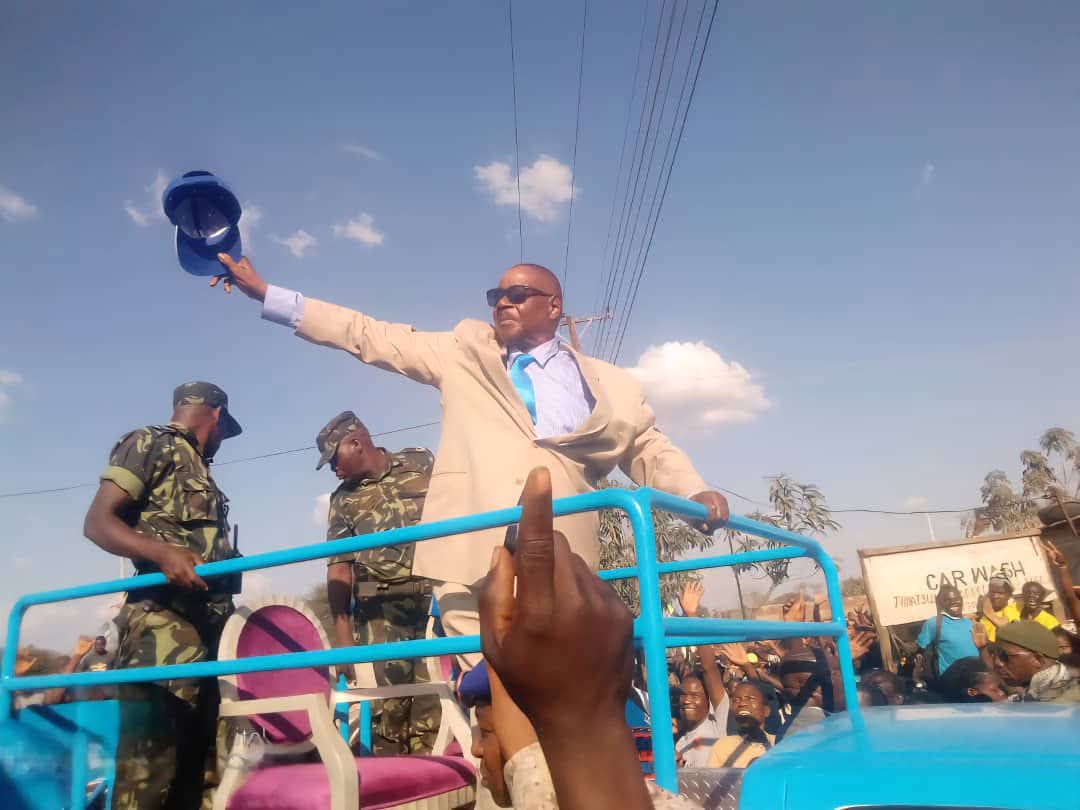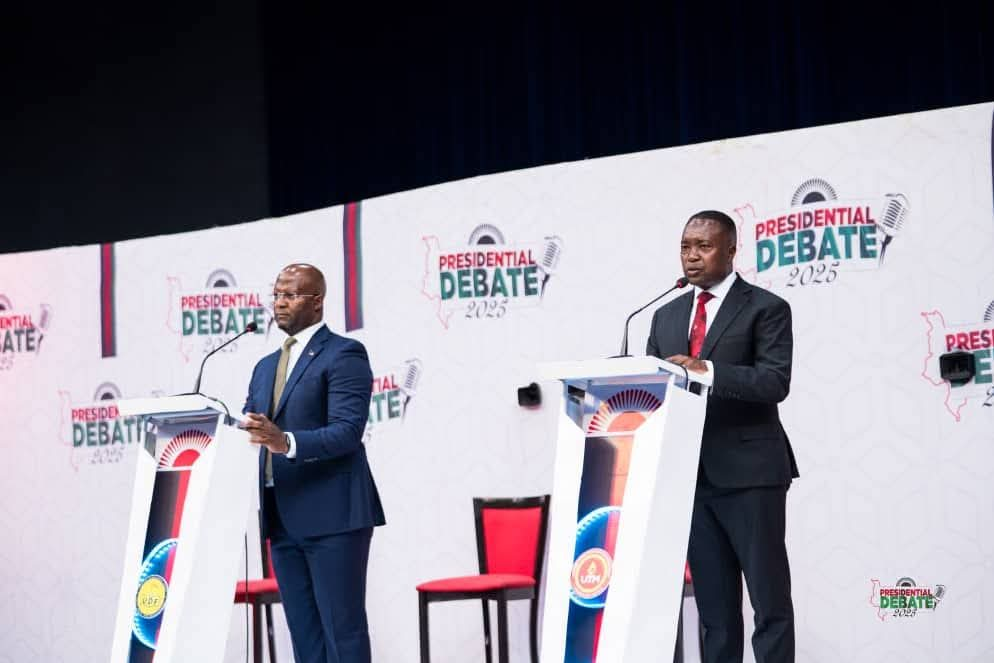By Rick Dzida
According to Sangwani Mwafulirwa, the spokesperson for the Malawi Electoral Commission (MEC), the presidential aspirants who have obtained their nomination papers so far include: Milward Tobias, running independently; Adil James Chilungo, also running independently; Lazarus McCarthy Chakwera of the Malawi Congress Party (MCP); Kondwani Nankhumwa of the Peoples Development Party (PDP); Akwame Bandawe of Anyamata, Atsikana, Azimayi (AAA); Joyce Banda of the People’s Party (PP); Atupele Austin Muluzi of the United Democratic Front (UDF); and lastly Reverend Hardwick Kaliya, who is also running as an independent candidate.
It is worth mentioning that a few potential candidates for the presidency, including Peter Mutharika, Dalitso Kabambe, David Mbewe, and Ras Chikomeni, have not yet collected their nomination forms. The last day to obtain these forms is July 5th.
However, one question lingers, what is the significance of collecting nomination papers in the view of possible electoral alliances?
Firstly, by collecting nomination forms, a presidential candidate signals their serious intent to contest the elections. This act not only showcases their readiness to engage in the political process but also helps to galvanize support from their base and potential voters.
Furthermore , collecting nomination papers establishes a candidate’s presence in the electoral race, which is vital for building momentum and visibility in a competitive political environment.
Additionally, it is important to note that collecting nomination forms does not automatically designate a candidate as a running mate in the event of an electoral alliance.
This is significant because it allows candidates to maintain their autonomy in the political landscape. It ensures that they can negotiate alliances without compromising their position or aspirations.
Lastly but not least the act of collecting nomination forms serves as a safeguard for candidates.
In the event that negotiations for an electoral alliance do not materialize, having the nomination forms allows candidates to still participate in the elections either as independent candidates or on their party’s ticket.
This is particularly important especially in our political climate where alliances can be unpredictable, and therefore candidates must be prepared for various scenarios.
It should be noted that merely obtaining nomination papers does not guarantee a candidate’s ability to run in the elections, as they may choose not to submit the papers and therefore forfeit the fee.
In summary, collecting nomination forms is a strategic move for presidential candidates in Malawi’s 2025 elections. It reflects their commitment to the electoral process, clarifies their position in potential alliances, and provides a safety net for their political aspirations.




